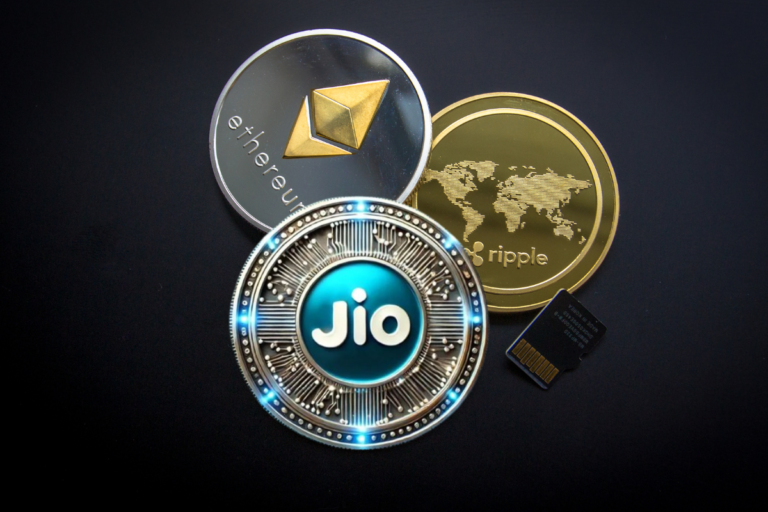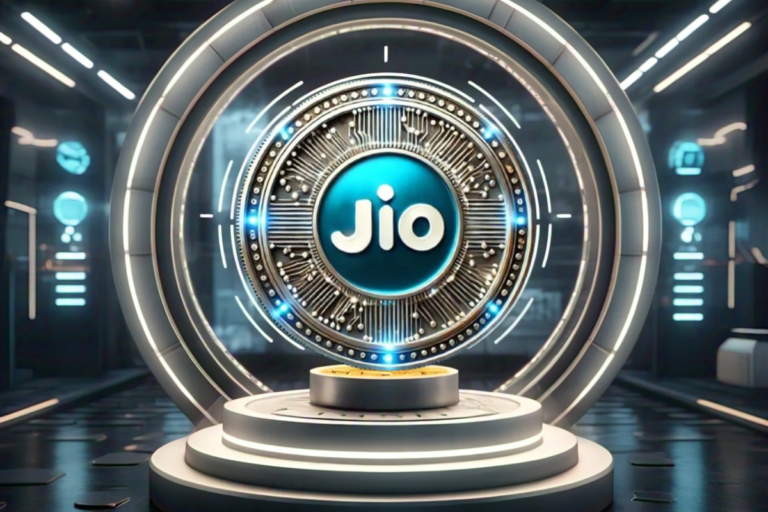Exploring the Impact of JioCoin on UPI, Paytm, and Other Payment Platforms
In recent years, digital payment systems have transformed how people make transactions in India. Services like UPI, Paytm, and others have become integral to daily financial activities. However, with the emergence of JioCoin, a cryptocurrency backed by Reliance Jio, the landscape of digital payments is on the verge of undergoing a substantial shift. In this article, we explore how JioCoin could affect UPI, Paytm, and other popular payment systems in the country.
Understanding JioCoin
JioCoin is a new cryptocurrency developed by Reliance Jio, based on blockchain technology. Blockchain, a decentralized and secure ledger system, promises to enhance the transparency and security of online payments. JioCoin aims to revolutionize digital transactions by offering a fast, secure, and cost-efficient alternative to conventional methods like UPI and mobile wallets.
JioCoin vs UPI: Could JioCoin Replace or Enhance UPI?
Unified Payments Interface (UPI) has emerged as one of India’s most widely used digital payment methods. Launched by the National Payments Corporation of India (NPCI), UPI allows users to transfer money instantly between different bank accounts. UPI has seen exponential growth, with millions of transactions occurring daily, making it an indispensable part of India’s payment ecosystem.
JioCoin, leveraging the power of blockchain technology, could present a faster and more secure alternative to UPI. Blockchain enables transactions with minimal delays, which may address the occasional slow processing times faced by UPI during peak periods. Additionally, the decentralized nature of JioCoin ensures better security, helping users avoid concerns like data breaches and fraud that can occur with centralized platforms like UPI.
However, UPI benefits from its established infrastructure, integration across multiple banks, and widespread user base. For JioCoin to challenge UPI effectively, it would need to secure broader adoption and user trust.
The Potential Impact of JioCoin on Paytm
Paytm is another major player in India’s digital payment sector. From mobile recharges to shopping and money transfers, Paytm offers a comprehensive platform for digital transactions. It also supports UPI, but its wallet system has been central to its success.
JioCoin could pose significant competition to Paytm, particularly in terms of transaction speed and lower costs. Since JioCoin operates on blockchain technology, it could offer faster, more efficient payment methods while potentially reducing the transaction fees that Paytm and other wallets charge. This could be a major incentive for merchants and consumers who want to save on fees.
Despite this, Paytm’s widespread adoption, brand recognition, and diversified offerings (like investment and insurance services) would make it hard for JioCoin to displace Paytm entirely in the short term. However, JioCoin could coexist with Paytm, providing an alternative for users looking for decentralized options.
JioCoin’s Effect on Other Payment Systems
JioCoin’s impact extends beyond just UPI and Paytm; it could disrupt a range of other digital payment platforms in India, such as Google Pay, PhonePe, and Amazon Pay. These platforms have grown rapidly, offering diverse services that include bill payments, peer-to-peer transfers, and even cashback incentives.
The introduction of JioCoin’s blockchain-based technology could give these systems a run for their money by offering lower processing fees, enhanced security, and faster transaction times. Yet, these established platforms have loyal user bases and solid infrastructure, which JioCoin would need to challenge effectively.
The key to JioCoin’s success will be its ability to attract both users and merchants. For now, the existing platforms have a head start in terms of market penetration and customer loyalty.
Challenges for JioCoin
While JioCoin holds significant promise, there are several hurdles it must overcome to achieve widespread adoption:
- Regulatory Issues: The Indian government has yet to fully regulate cryptocurrencies, and its stance on digital currencies remains unclear. JioCoin will require regulatory approval and a favorable environment to operate without restrictions.
- Trust and Adoption: For JioCoin to become a mainstream payment method, users and businesses need to trust it. This trust will take time to build, especially considering the volatility and uncertainty that often surround cryptocurrencies.
- Technological Integration: Integrating JioCoin into the current ecosystem of digital payment platforms is no small feat. Ensuring compatibility with existing systems while maintaining blockchain’s decentralized nature could be a technical challenge.
Conclusion
JioCoin has the potential to reshape India’s digital payments landscape by offering faster, cheaper, and more secure transactions. Although UPI, Paytm, and other platforms are currently dominant in the Indian market, JioCoin’s introduction could introduce healthy competition. If it can navigate regulatory challenges, gain user trust, and integrate with existing systems, JioCoin could carve out a significant space in India’s rapidly evolving payment ecosystem.
Key Points to Remember:
- JioCoin uses blockchain technology to offer secure and efficient digital transactions.
- It could offer an alternative to UPI with faster payments and enhanced security.
- Paytm and other payment systems may face competition from JioCoin, especially in transaction fees and processing speed.
- JioCoin’s success depends on regulatory approval, user adoption, and smooth integration into existing payment methods.
Keeping an eye on the evolution of JioCoin will be crucial for businesses and consumers looking to stay ahead of the curve in the digital payments world.
Frequently Asked Questions (FAQ)
1. What is JioCoin?
JioCoin is a cryptocurrency developed by Reliance Jio, designed to provide faster, more secure, and lower-cost digital transactions using blockchain technology.
2. How is JioCoin different from UPI?
While UPI facilitates instant bank transfers, JioCoin operates on blockchain, which may offer faster transaction speeds, enhanced security, and lower transaction fees compared to UPI.
3. Can JioCoin replace Paytm or UPI?
JioCoin could potentially complement or compete with platforms like Paytm and UPI, especially in terms of speed and transaction costs. However, for JioCoin to replace them, it needs to gain wide adoption and trust among users and merchants.
4. What are the advantages of using JioCoin?
JioCoin could provide faster transactions, improved security, and lower transaction costs compared to existing digital payment systems. Its blockchain infrastructure ensures transparency and security.
5. Is JioCoin legal in India?
The legal status of JioCoin depends on the Indian government’s stance on cryptocurrencies. As of now, cryptocurrencies are not fully regulated in India, and the government’s approach to digital currencies remains under discussion.
6. How can I use JioCoin for payments?
JioCoin would require users to download a dedicated wallet or app to store and transfer JioCoins. However, for mainstream adoption, it would need to be integrated into existing digital payment systems, which could take time.
7. Will JioCoin affect existing digital wallets like Google Pay and PhonePe?
Yes, JioCoin may introduce competition by offering better transaction speeds and lower fees. However, Google Pay, PhonePe, and similar apps have strong market presence, so JioCoin’s widespread adoption would take time.







